Oppi nindridu maNNalaan;
Appan oppavan annai oppavan
Arpudha poruL aanavan.
Word meaning
appu = water; uppu = salt; en mana = my heart/mind; gugai = cave; oppi = compared to; aNNal = honorific title/chief/lord; appan = father; annai = mother; arpudham = wonderful;
Meaning
My Ramana has dissolved in the cave of my heart like salt in water. He is like my father and my mother. He is a great wonder, our sadguru Ramana.
The salt doll comparison is comes up in Talks No.5, where Bhagavan says, “By constantly keeping one’s attention on Source, the ego is dissolved in the Source like a salt-doll in the sea.”
And also later:
“Mr. Maurice Frydman remarked on the subject of Grace: ‘A salt doll diving into the sea will not be protected by a waterproof coat.’ It was a very happy simile and was applauded as such. Sri Ramana Maharshi added, ‘The body is the waterproof coat.'”
Ramakrishna Paramahamsa also refers to the analogy, “A salt doll went to measure the size of the Ocean. It went in to look and never came back.”
This simile is reminiscent of Bhagavan’s plea in Aksharamana malai:
ambuvil aali pol anburuvunil enai
Anbaai karaitharuL Arunachala
Meaning
Just how hail stone, made of water gets its solid form, and melts into its original form of water with heat, dissolve me in your form of love Arunachala.
When we surrender completely or do self enquiry, as Bhagavan has instructed us, He merges in our heart as the Self where all differences and dualities dissolve and disappear, leaving just the Self shining as Arunachala.
Comparing God to mother and father is found in bhakti literature. Saint Manickavasagar calls Shiva ‘ammaye appa oppila maNiye’ (mother, father, peerless gem) in Siva puranam. Sri MahaPeriyava also says that Shiva and Parvati are our (universal) parents. Bharathiyar, a Tamil poet from the early 1900s, has written poems in praise of Lord Krishna as mother and father. Tirumular, in Tirumandhiram verse 7 says, ‘….thannai appa venil appanumai’ meaning he is Father to those who call him Father, and in verse 8 ‘ …thaayinum nallan thazh sadayan’ meaning ‘kinder than is he, the one with flowing matted locks.
It is also sentiment expressed in verse 6 and14 of Aksharamana malai:
6 Eendridum annayin peridharuL purivoi
Idhuvo unadharul Arunachala
Meaning
Arunachala! You drench your devotees with love that’s greater than that of a mother’s, is this the glory of your grace?
14 Avvai pol enakkun aruLaithandhenai
AaLuvadhun kadan Arunachala
Meaning
Arunachala! It is your duty to take me over (aaLuvadhu = dominate) with your grace, compassion (which comes so naturally to you), and unconditional love like a mother. Because you are my mother and father to me now that I have surrendered to you.
(And also in the last line of Arunachala NavamaNi malai verse 5 ‘… neranadhundo thaai sisivukaatrum …)
Here SV considers Bhagavan, who is no different from ardhanareeswara that is Arunachala, as his mother and father.

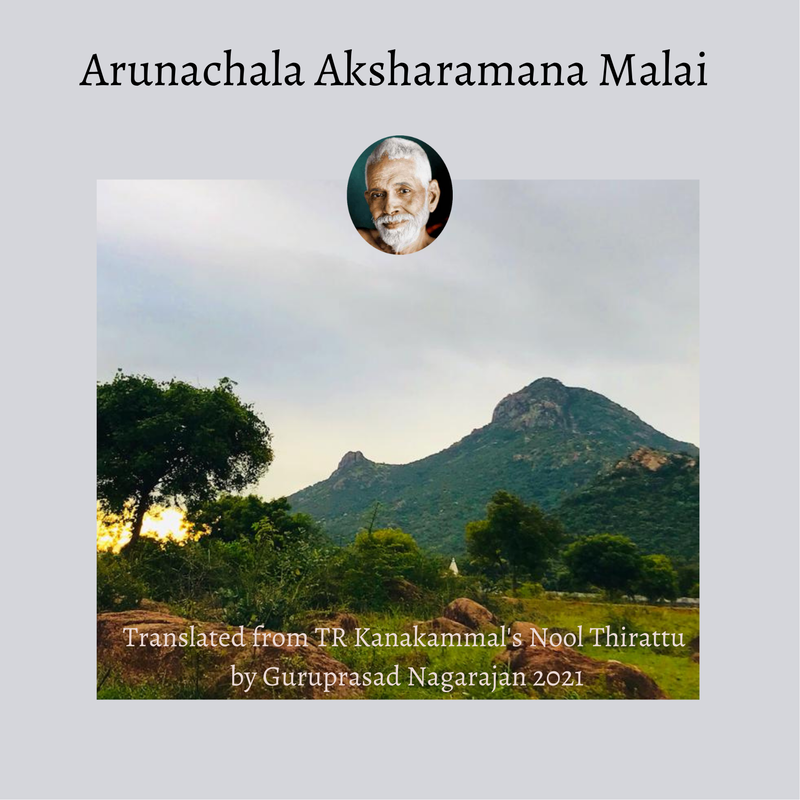
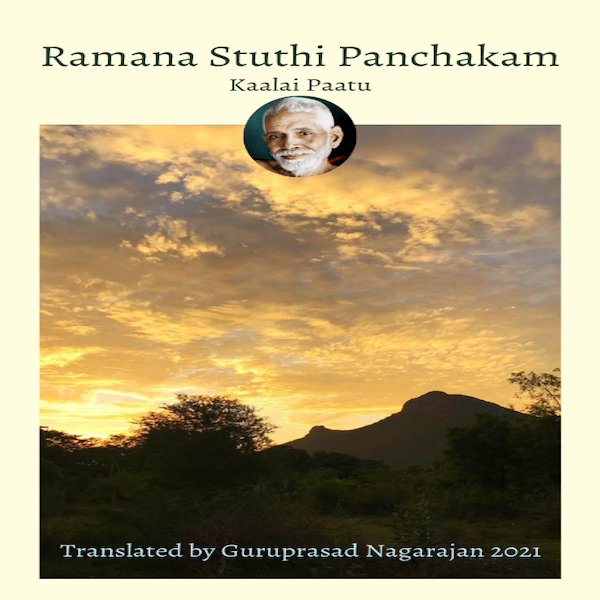
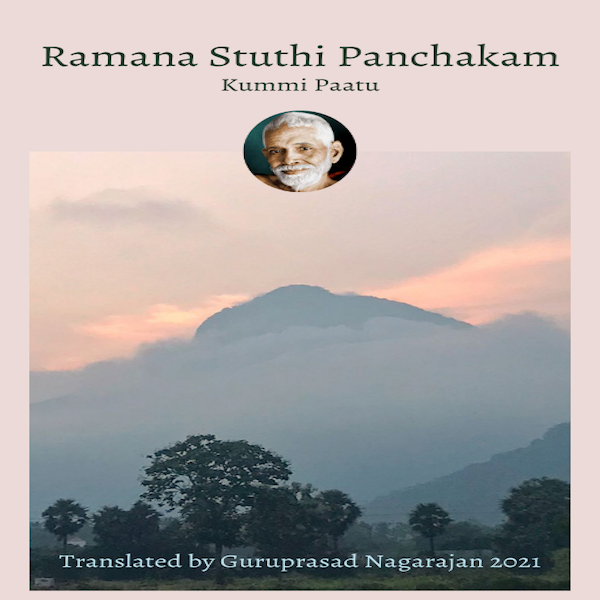
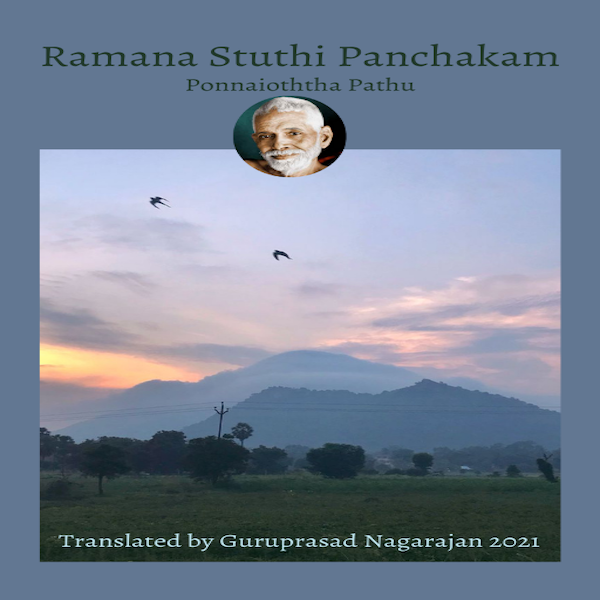
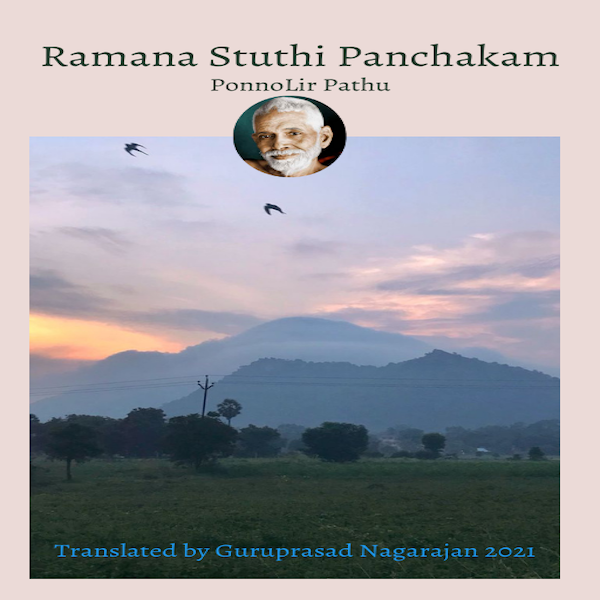
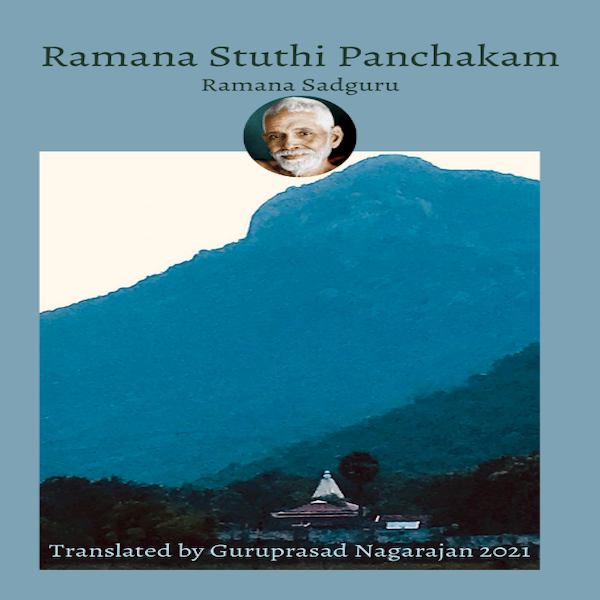
 RSS Feed
RSS Feed